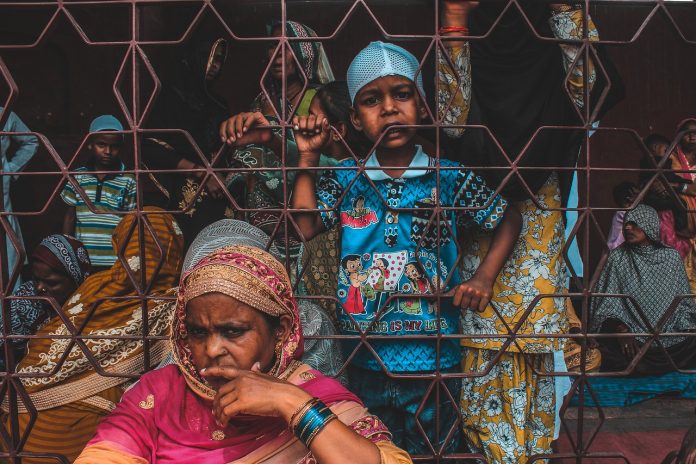The pandemic has changed the fast pace of life and has also sparked irreparable change. Many aspects of how we will live in the future after the pandemic – from cities to economies to nutrition – have changed. As India grapples with food insecurity, the pandemic has made issues with access to safe and nutritious food more acute. India is the biggest food producer in the world, ironically has the largest population of hungry people. The Global Hunger Index estimates India at the position of 102 out of 117 nations.Hunger, malnutrition, poor diets has become the cause of death in the world because as the COVID-19 pandemic continues, the fight against hunger has lost steam and has affected the fragile and fragmented food supply chain. This has exposed the fragility of the food system, raised prices of food, lowered incomes, and caused shortages in supermarkets. As a result, people do not have access to safe and nutritious food, making diets worse, increasing obesity rates, in some places people are suffering from low diets and at other places lockdown has created a stay at home atmosphere where food trends are witnessing changes.
A good result to come out of the pandemic is a rise in new food cultures. People establish new diets or eating patterns by changing their relationship with food culture and theirmind-sets towards consumption patterns. In India, there have been accelerated changes in this area during the pandemic. According to the Annual Food and Health Survey from the International Food Information Council, 85% of people in the country have changed their food habits by consuming more to plant protein during this period.
Food for Thought
The Pandemic has induced a culture of conscious eating. The term conscious consumption (or invidious consumption), as American Sociologist Thorstein Veblen pointed out, becomes relevant in these conditions. The universal pandemic has given rise to a food culture in which the consumption of food becomes associated with wealthy people, while lockdowns and rises in prices of food commodities the poor have been denied basic necessities like food. This producesa vicious circle of hunger and obesity due to food becoming a luxury for some and a need for others. The trend of mindful eating began with the pandemic induced lockdown, with abundance of food choices in times of pandemic makes people rethink what to eat and what not to. As pandemic made us housebound people began everything buying, cooking, and eating differently. People are more conscious now in choosing the right food as the intensity of virus has increased.As immunity became the new buzzword as it was informed that poor diet leads to increased risk of infection so the pattern of mindful eating was aroused. On the other hand the plight of the poor people as well as the migrant labourers trapped in the lockdown were left to poverty with limited food choices, which led to various steps taken for food security.
Dining In vs. Dining Out
Food is the most frequently indulged pleasure and goes beyond the taste and texture, it’s ingrained in the Indian culture during the pandemic, and our relationship with food has changed. There was a universal opinion about taking. According to the expert opinions, health and immunity are directly dependent on what you eat. The Government of India has listed certain Covid boosters in times of the pandemic for the awareness of the public in its portal. As it was a necessity in times of the pandemic. A study in India reflected that Indians have rushed based foods for safeguarding their health from the covid catastrophe.to boost immunity and health. Food boosters, which tended to improve immunity during the times, quarantine snacking with stay at home foods becoming popular at homes and constitutes the dining in habits, as the lockdown has resulted in restricted movement and access to indulgent food and food outings. As per research done by London Based Market Mintel Covid 19 has resulted among 45 percent of consumers to add nutrients to their diet and the other 29 percent reported more interested in foods that are vital for the immune system since the outcome of the pandemic. To address the lack of ability to engage in these normal practices, people started engaging in indulgent food at home and creating restaurant-like ambiance at home for personal enjoyment. The rise in conscious consumption and online foodie culture inside the homes (through which people during this time try to cook like chefs at home and create delicacies and improve their culinary skills) have helped prevent over-eating and also increased variations in food habits with practical eating practices. According to the research made by Techi Science Research titled Indian Immunity Boosting Packaged Products Markets the people’s consciousness towards immunity based food has increased. A Wunderman Thompson South Asia study estimated that 94 percent from 32 cities in 15 states opined that everyone in their homes needed immunity boost. The lockdown prompted many people to re-evaluate and be more worried about their food habits, leading to the development of new trends in food consumption during the shutdown. Dining out is no longer possible as the pandemic rises and the question of safety is another important aspect, it’s not about food alone but there are several things beyond it. Restaurants have been reinventing themselves as the pandemic times has not disappeared by masking it up distancing, sanitisers and many other safety protocols. The home eating practices have evolved with the catastrophic pandemic so the virus doesn’t heighten up.
Changing Trends and Continuities
Food has been one of the essential services to be continued in these times of crisis and one of the basic needs. But the pandemic has caused numerous stresses in this area – closure of eating places, more eating due to boredom, and increases in eating local or home-grown food. Food choices have increased with rise in home-grown food, helping the environment which will make people healthier, to eat locally produced foods, vegetables than meat and less processed foods. There has been a culmination of literacy on food with the onset of the deadly pandemic and food system literacy is an opportunity for the people to make better food choices which are significant for the health and well-being of the people and the eco-system. There have been different trends in eating during the lockdown. As Work from Home culture continues there has been a rise in emotional eating. COVID-19 lockdowns have changed the way people consume breakfast, lunch and dinner, as they remain confined to their homes and resulted in mindful eating habits, where the mind-sets require to trust the body’s natural instincts and rethink food choices and practices. With the inability to visit the markets daily, onset of gardening of food in the residence, new forms of cooking has been reshaping and a rise in popularity of cooking channels occurred, which led to rise in home chefs around the world. The food industry in India is also facing a wide range of shifting customer preferences with the lockdown – people now prefer more home-cooked and healthier foods that boost the immune system The disaster has made people re-evaluate the link between food and health. From organic to plant based food, the introduction of strict lockdown measures has produced new food routines for many people. The pandemic also makes people rethink in India the long standing problems of food security and nutrition and the need to address it.Covid-19 offers a new opportunity for the people to create a food system that is more resilent and sustainable. There has been a growing consumer demand in India for healthier and nutritious foods through customer awareness program respecting the culture, taste, food preferences with various government schemes and programmes.
In Lockdown: Food Revolution
Lockdown has brought about a food consumption revolution in India due to changes in daily life brought by the pandemic and has unlocked new food trends, Food became the new international trend with cooking reality shows, the pressure to eat well to fight against the deadly virus became the norm of the day. As food became the fulcrum for driving individuals to better health and prosperity. People all over the world are reinventing to eat, drink and socialize over food experience. The massive progress in scientific realm has been challenged by covid pandemic, in India people have resorted to the traditional food practices to counter the pandemic with eating together with the family practices becoming the norms of the day. The Restaurants have been accepting double vaccinated with reimagining a new trend.
Staying at home for more than a year has renovated the kitchen, and brought a major transformation, As Cooking has been renvated in these times and people have become more aware of and focused on eating healthy and staying safe. A new relationship has been developed with the plate and emergence of novel consumption behaviours, redefining new food habits like clean snacking, covid-19 stay at home routines, preference for home cooking foods etc. as these covid times can be said to be a relaunch of food habits in India. The cautiousness for food is not only with the new normal but with the times to come so one needs to practice sustainable and healthy lifestyle for times to come.
According to Flinders University Researcher, Associate Professor Kaye Mehta opinion by the research conducted that the pandemic provides better reasons to eat in healthier and more sustainable ways. The significant challenges India posed with the waves of Pandemic made people to rethink better choices and positive behavioural change in eating. According to Research conducted by GlobeScan where it cited its annual Healthy & Sustainable Living study helped the companies to understand more the needs of the consumers for healthy eating practices. The rise in sustainable way of eating here means a positive and healthy way of cooking and eating practices for the generation to survive for times to come. As we make a shift into another uncertain life-time that will continue to test our physical and mental well-being, it is necessary identify the significance of leading a sustainable lifestyle and take steps to achieve it.
Dr.Nupur Pattanaik teaches Sociology at Central University of Odisha.














